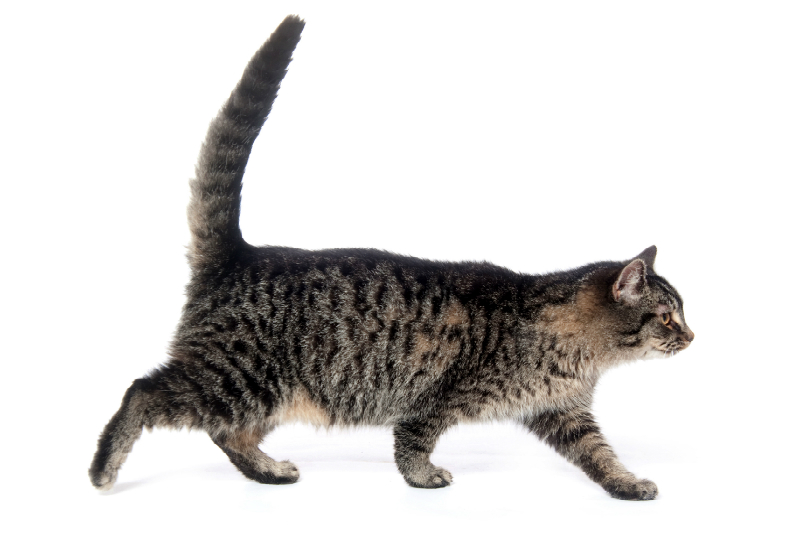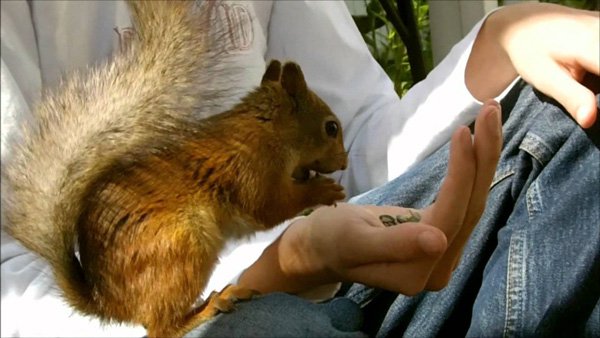

If you have adopted a cat or kitten from a reputable re-homing centre, your new pet will probably have been neutered by the time he comes to live with you, unless you have taken on a young kitten, in which case you will have been asked to sign an undertaking to have your pet neutered as soon as he or she is old enough. However, many people acquire cats and kittens from a variety of sources including from friends and people at work, and sometimes they are found abandoned in your garden or close by and you may adopt a stray, and then you will need to make the decision to have your new pet neutered.
If you buy a pedigree kitten from a reputable breeder, they will probably have explained to you that the kitten is on the ‘Non-Active Register’, which means that it has been registered with the Governing Council of the Cat Fancy (the feline Kennel Club) as not to be bred from, and that any progeny would not be able to be registered. If you are interested in breeding from a particular breed, any breeder will expect either that you are already an established breeder, or they will want to be assured that you have considered the implications of breeding and are probably known to them (or to a trusted breeder friend) as an existing exhibitor of neutered cats. Reputable breeders will rarely sell male kittens to be used for breeding (except to close friends in the cat fancy), as it is a very specialised task that requires several years’ experience of cat breeding and is definitely not something to be undertaken by a novice.
Kittens can become sexually active from the age of between four to five months, and from this stage they will only have one thing on their minds! It’s a complete myth that young female cats need to have a litter before they are neutered, or that you should allow them to have one season first. If you do not have them neutered you stand a very high risk of a female escaping in search of a mate, and then becoming pregnant at an age she really cannot cope with having a young family. An ‘entire’ female will start to call for a mate as soon as she matures, and you will end up with all the neighbourhood tom cats in your garden, or worse still, getting in through your cat flap and mating your female as well as spraying your house as their new territory. Depending on the background of your new female cat, if she has any Siamese or Oriental breeding in her family history, the call could be ear splitting, and last for several days!
New cat owners sometimes worry that they are depriving male kittens or cats of a natural life, but an entire male cat is definitely not a pet, as they tend to wander in search of a mate, sometimes not returning at all and eventually becoming a feral cat in their search. Entire males also spray their territory, which includes your house, and the smell is extremely pungent, far worse than a basic ‘whiff’ of cat urine. They are also not particularly affectionate, and can sometimes be difficult to handle as their hormones turn them into very strong-willed characters.
Contact your vet as soon as the new arrival has settled, and discuss the best time to have your cat or kitten neutered. If the new arrival is already adult, keep them in until they seem to have accepted their new surroundings, and then book them in. With a kitten, the best time is around four to five months old, but this will depend on how big they are, and your Vet may ask you to weigh them before booking them in. You will be asked to starve your pet from about 8pm the night before the operation, although they should have access to their water bowl - this is very important as there is always a risk of choking if a general anaesthetic is given on a full stomach. If you have more than one cat, or you also have a dog, you will need to take their food away in the evening too as there is a risk that the cat due for an operation could help themselves to someone else’s supper. You’ll need to take Kitty to the Vet’s first thing in the morning so that they can be prepared for their operation, and you can then return home and give your other pets their late breakfast! You’ll probably be asked to ring up at lunchtime, and then collect the cat late afternoon, just before evening surgery.
Neutering is a very routine operation for your Vet to perform, and your pet will usually return to their normal self within about 24 hours – you’ll be amazed at the speed of the recovery rate! However, your newly neutered cat will smell rather ‘medical’ when he or she returns home, and may not be immediately welcomed back with open paws by any other cats, so it is often as well to offer them a quiet corner with a warm bed in case they are feeling a little wobbly. Sometimes in the case of males, there will be a little superficial bleeding evident, but this will soon heal up and shouldn’t be any cause for alarm. You will need to try and prevent your cat or kitten from tugging out any stitches, although in the case of spayed females, there is normally another row of stitches inside a little further along from the exterior stitches will serves as a kind of safety barrier. Your Vet will probably want to see your cat again about five days after the operation, and this is usually included in the cost of neutering.
One a cat or kitten is neutered, it will usually calm down a little if it has been getting very hyperactive as it has got older. You will find that your neutered pet will be very affectionate and loving, and although people often wonder whether a neutered male or a neutered female makes the better pet, there is usually very little to choose between them in terms of temperament, although females tend to be slightly more home-loving and less inclined to explore very far from the house.
 How to Keep Your Dogs Contained
How to Keep Your Dogs Contained
 Canine Communication - Three Ways In Which You Might Be Doing Your Dog A Disservice
Canine Communication - Three Ways In Which You Might Be Doing Your Dog A Disservice
 How to read cat communication signals?
How to read cat communication signals?
 Chicken Runs: Here's a Shortlist of What to Expect When Buying
Chicken Runs: Here's a Shortlist of What to Expect When Buying
 8 Good Reasons Why Adding Olive Oil To A Dogs Diet Works
8 Good Reasons Why Adding Olive Oil To A Dogs Diet Works
 Is It Safe To Vaccinate A Cat?
Is It Safe To Vaccinate A Cat?
 Cryptorchidism Or Retained Testicles In Dogs
Cryptorchidism Or
Cryptorchidism Or Retained Testicles In Dogs
Cryptorchidism Or
 Horse Ulcers: Symptoms, Causes and Remedies
Horse Ulcers: Symptoms, Causes and Remedies
A
Horse Ulcers: Symptoms, Causes and Remedies
Horse Ulcers: Symptoms, Causes and Remedies
A
 Puppy and Dog Obedience Training
Puppy and Dog Obedience Training
Knowing basic
Puppy and Dog Obedience Training
Puppy and Dog Obedience Training
Knowing basic
 What To Look For When Choosing A Vet For Your Cat
What To Look For
What To Look For When Choosing A Vet For Your Cat
What To Look For
 Health Issues More Commonly Seen In The Bouvier Des Flandres
Health Issues Mor
Health Issues More Commonly Seen In The Bouvier Des Flandres
Health Issues Mor
Copyright © 2005-2016 Pet Information All Rights Reserved
Contact us: www162date@outlook.com